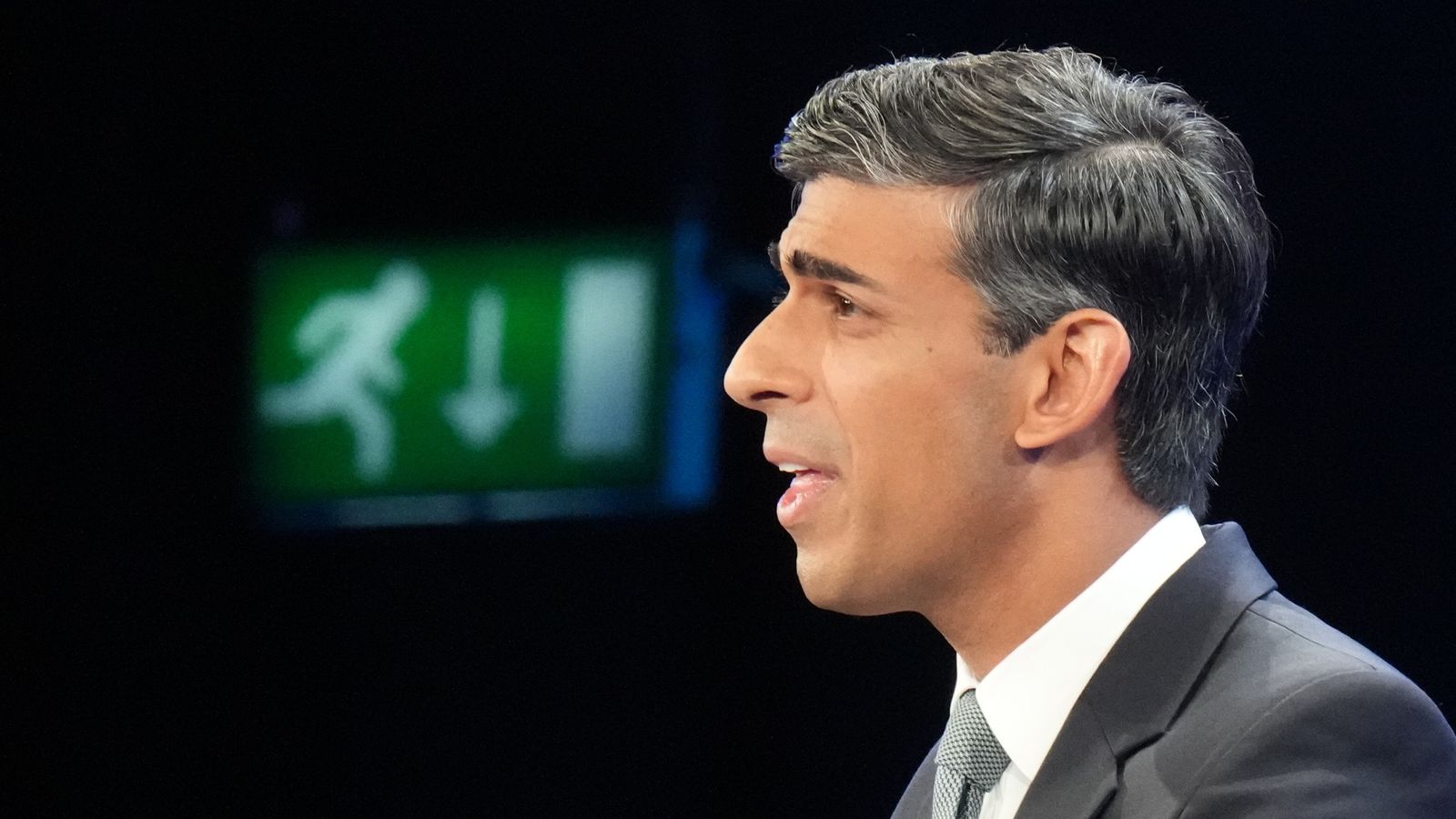After seven years of political permacrisis, the assumption that every rumble in Westminster inevitably leads to big bang can be too tempting for many to resist.
The past week has seen fevered talk of snap elections, confidence votes and even an elaborate plan to bring back Boris Johnson as prime minister in a tie-up with cow-teat-guzzling jungle dweller Nigel Farage.
The reality of the coming days and weeks may be more boring.
Michael Gove played down the chances of a snap election, without completely ruling one out, speaking to Sky News on the Sunday Morning with Trevor Phillips programme this morning.
It’s probably safe to take this at face value though.
For all the similarities to 2019, the next election is highly unlikely to mirror the campaign that was going on exactly four years ago, in being focused on a single issue – Brexit then, perhaps migration now.
That’s because while small boat crossings are high up the list of priorities for many, the cost of living and the NHS are more important for most.
So what about the outlook for Rishi Sunak?
Somewhat paradoxically, when it comes to his position, the prime minister gains some security from the chaos of the last year-and-a-half.
There remains little appetite among MPs for a third change in Tory leader in little over 12 months – especially with an election so close.
Please use Chrome browser for a more accessible video player
Chances of rebellion receding after ‘unite or die’ moment
Indeed, amid all the attacks on No 10, calls for a resignation have been lacking – even among ardent critics like Suella Braverman.
The government thumbscrews on the looming Rwanda bill also appear to have been loosened since Mr Sunak appeared to adopt the language of confidence votes last week by telling MPs this was a “unite or die” moment.
It’s now clear that rebels won’t be chucked out of the party and a government loss wouldn’t lead to a prime ministerial resignation or election.
In fact, the chances of the bill being voted down on second reading come Tuesday seem to have receded as well.
A close inspection of Brexiteer ringleader Sir Bill Cash’s piece in the Sunday Telegraph suggests he would rather try to change the legislation at a later Commons stage than blow it up now.
On that, Tory veteran David Davis and shadow minister Liz Kendall seem to agree – both saying the prime minister will easily win this week’s vote.
But even if the leadership of the European Research Group do opt for a full rebellion – either now or in the future – it’s also fair to ask how many MPs will follow them into battle, given the group undoubtedly holds less political sway than it did in 2019.
Remember, the same “star chamber” of right-wing legal brains described Mr Sunak’s Windsor Framework Brexit deal as “practically useless” earlier this year and it only led to 22 Tories rebelling when it came to the Commons vote.
Read more:
Cleverly’s popularity has plunged – but what do voters think?
What is the revamped Rwanda plan?
Middle finger social media dig at Labour ‘salty’
Please use Chrome browser for a more accessible video player
Be the first to get Breaking News
Install the Sky News app for free
Crisis delayed is not crisis averted
None of this should hearten Downing Street too much though.
Crisis delayed is not crisis averted and the prime minister will still have to fight off attempts to change his Rwanda bill both in the Commons and the Lords.
There’s also bubbling concern from a different wing of his party that the legislation may already have gone too far in disapplying tranches of domestic and international law.
What this all adds up to is the gradual erosion of the scope for Mr Sunak to turn his party’s fortunes around ahead of a general election – with political behemoths like Rwanda, cost of living and waiting lists eclipsing any successes and preventing the government from ever really getting on the front foot.
In such a bleak situation, shock developments like confidence votes or grumpy resignations can never be completely ruled out.
But all things considered, the current trajectory for the Conservative Party still points more towards going out with a whimper rather than a bang.






